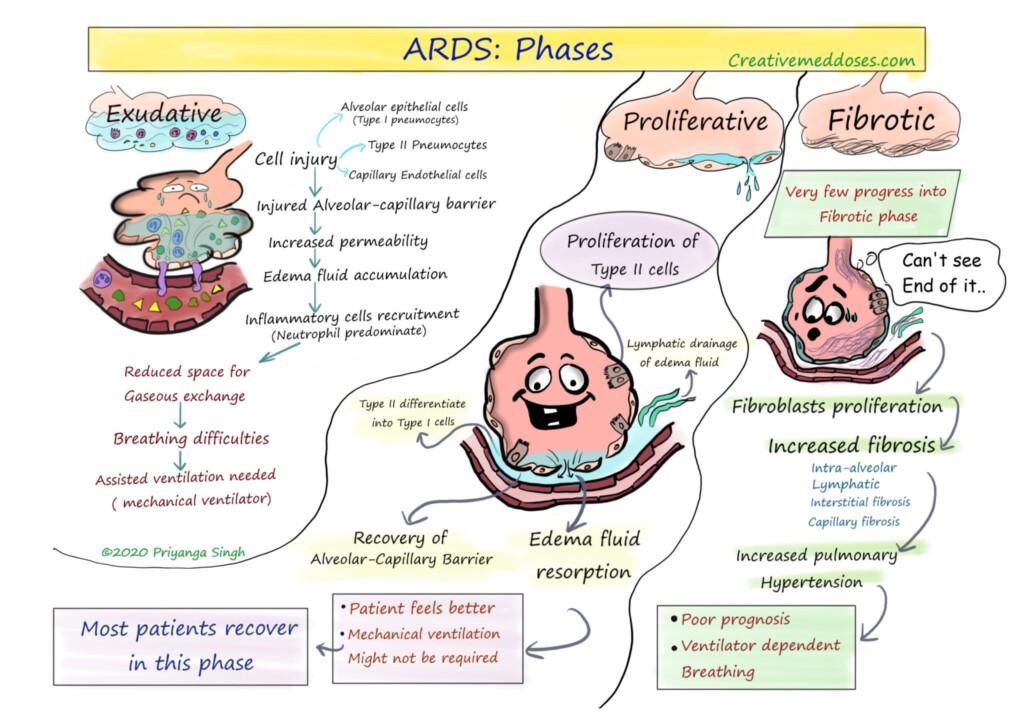Acute Respiratory Distress Syndrome (ARDS) is a severe and life-threatening condition that affects the lungs. It is characterized by rapid onset of respiratory failure, leading to low oxygen levels in the blood. Understanding the pathophysiology of ARDS is crucial for effective management and treatment of this condition.
One way to visually represent the complex pathophysiology of ARDS is through a flow chart. This flow chart can help medical professionals and students alike to grasp the sequence of events that occur in the development of ARDS.
Ards Pathophysiology Flow Chart
Key Components of the ARDS Pathophysiology Flow Chart
The ARDS pathophysiology flow chart typically includes key components such as the initial insult, inflammatory response, endothelial and epithelial injury, alveolar damage, and impaired gas exchange. The flow chart demonstrates how these components interact and contribute to the progression of ARDS.
Understanding each step in the flow chart is essential for identifying potential treatment targets and interventions. For example, targeting the inflammatory response or supporting gas exchange can help improve outcomes for patients with ARDS.
Conclusion
In conclusion, the ARDS pathophysiology flow chart is a valuable tool for understanding the complex sequence of events that occur in the development of ARDS. By studying this flow chart, healthcare professionals can gain insight into the pathophysiology of ARDS and tailor treatment strategies accordingly.
Furthermore, the flow chart can serve as a teaching aid for medical students and professionals, helping them to visualize and comprehend the intricate processes involved in ARDS. Overall, the ARDS pathophysiology flow chart is a valuable resource for improving the management and outcomes of patients with this challenging condition.
